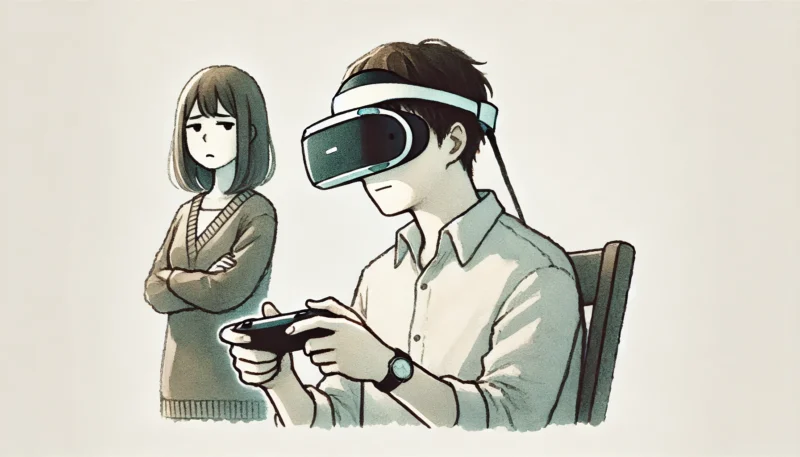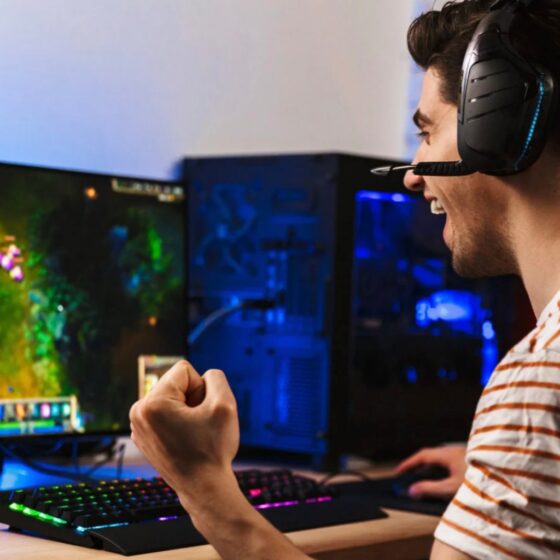As the glow of the Nintendo Switch screen lights up the room, many are left wondering if couples video games could be the secret ingredient to a happier marriage or the recipe for discord. Gaming, often seen as a solo activity, has made its way into the heart of the household, becoming a shared hobby for gamer couples everywhere. With the increasing popularity of video games in marital life, it’s essential to delve into how these digital adventures are shaping relationships. From fostering companionship on a cozy date night to sparking debates over gaming addiction, the intersection of video games and marriage is a captivating exploration of modern love.
This article will journey through the various landscapes of couples video games, highlighting the potential pitfalls and the joyous rewards it can bring to a marriage. First, we will understand the negative effects of video games on relationships, laying bare the concerns surrounding gaming addiction and its impact on marital bliss. Moving forward, we will explore how turning gaming into a positive marital activity can strengthen bonds, turning a contentious ‘game over’ marriage scenario into a ‘couple gaming together’ success story. Expert opinions on the matter will shed light on the delicate balance between leisure and addiction, providing couples with the knowledge to navigate their gaming habits healthily. As we conclude, the narrative will synthesize the insights gained, offering a balanced perspective on making video games a part of a couple’s happily ever after.
Understanding the Potential Downside of Gaming
Reports and studies on negative impacts reveal troubling trends. For instance, Divorce Online identified a correlation between divorce and the video game Fortnite, where 5% of divorce petitions listed the game as a reason for separation, highlighting a scenario where gaming becomes a focal point over relationships. Further research from the Journal of Leisure Research found that among couples married around seven years, 73% of gamers were husbands, with 75% of their spouses wishing for less gaming and more interaction, often leading to marital strife.
Personal anecdotes of marital strain further illustrate the disruptions caused by excessive gaming. One individual shared how their spouse’s gaming addiction destroyed the intimacy and bond that was once cherished, turning their marriage into a roommate situation devoid of love. Another recounted how gaming took precedence over significant life events, contributing to a profound sense of loneliness and neglect within the marriage.
These insights paint a vivid picture of how video gaming, while a source of entertainment, can morph into a detrimental addiction if not balanced with the demands and responsibilities of marital life.
Turning Gaming into a Positive Marital Activity
Playing video games together can transform a simple evening into an engaging session of cooperation and fun, significantly benefiting marital relationships. Here are methods to integrate gaming into a couple’s life and games that are great for bonding:
Methods to Integrate Gaming into Couple’s Life
- Set Common Goals: Engage in games where both partners work towards a common objective, enhancing teamwork and communication.
- Choose Cooperative Games: Opt for games that require collaboration, such as solving puzzles or achieving in-game objectives together, which can improve problem-solving skills as a team.
- Schedule Regular Game Nights: Just like date nights, regular gaming sessions can become something both partners look forward to, fostering a sense of anticipation and shared experiences.
- Support Each Other: Whether helping each other overcome difficult levels or celebrating victories, support in gaming can parallel support in real-life situations, strengthening the bond.

Games That Are Good for Bonding
- Cooperative Games: Titles like ‘It Takes Two’ offer a platform for couples to tackle challenges together, requiring both players to cooperate to progress.
- Adventure Games: Engaging in story-driven games where decisions impact the outcome can lead to discussions about tactics and strategies, deepening understanding between partners.
- Puzzle Games: These can enhance cognitive skills while allowing partners to complement each other’s thinking styles, leading to a greater appreciation of each other’s intellect.
- Casual and Fun Games: Games such as ‘Mario Kart’ can lighten the mood and add a playful element to the relationship, making gaming a joyful shared activity.
By incorporating these methods and choosing the right games, couples can not only enhance their leisure time but also strengthen their emotional and communicative connection, turning gaming into a positive and integral part of their relationship.
Expert Opinions on Gaming and Marriage
Insights from Relationship Therapists
Therapists emphasize the narrative that video games are often mistakenly blamed for communication problems in relationships. Instead, they argue that games can be a safe, non-judgmental space where individuals, particularly men, can explore emotions and feel a sense of competence and achievement. Dr. David Hawkins, from the Marriage Recovery Center, suggests that the neglect of a partner’s needs due to gaming is indeed an issue, but it’s crucial for couples to discuss these issues openly without shame, focusing on comfort levels and preferences in gaming.
Benefits of Shared Leisure Activities
Research indicates that shared leisure activities, like gaming, can significantly enhance marital satisfaction. A study by Locke in 1951 found that couples who enjoyed leisure activities together were less likely to divorce compared to those who did not. This is supported by modern studies that show a positive relationship between shared leisure time and marital satisfaction, suggesting that such activities can improve communication and reduce stress in relationships.
Conclusion
Navigating the complex interplay between video games and marital satisfaction, this article has uncovered both the unique challenges and opportunities that gaming presents in a married life. From the pitfalls of gaming addiction and its potential to overshadow marital bonds, to the joy and connectedness found in shared gaming experiences, the key takeaway is clear: video games, when engaged in judiciously and as a shared hobby, can indeed strengthen the fabric of marital relationships. By adopting healthy gaming habits and choosing games that foster cooperation and communication, couples can transform potential digital divides into bridges of connection, enriching their shared life experience.
The expert insights and research discussed herein underscore the importance of balance and open dialogue in harnessing the positive aspects of gaming within a marriage. It rings true that shared leisure activities, such as video gaming, can significantly enhance marital satisfaction when integrated thoughtfully and respectfully into the relationship. As couples navigate their gaming journeys together, the overarching narrative is one of potential—a potential for video games to not just be a source of entertainment but a medium for deeper bonding, mutual respect, and everlasting companionship in the digital age.
FAQs
1. How do video games impact marital relationships?
Playing video games excessively can lead to less quality time spent together, disrupt daily routines, and cause significant strain in many marriages, especially if only one spouse plays or if the couple plays different games.
2. What are the effects of video game overuse on romantic relationships?
Excessive video gaming can hinder partners from influencing each other regarding their gaming habits, which often leads to feelings of neglect or insignificance, according to Mathew Meyers, LMFT, a therapist and owner at Traverse Counseling and Consulting in Plymouth, Minnesota.
3. What percentage of divorces are attributed to video game addiction?
In a single year, the percentage of spouses who cited their partner’s addiction to video gaming as a reason for divorce rose from 5% to 15%.
4. How do video games influence family dynamics?
Studies indicate that children addicted to video games generally have poorer relationships with their parents, characterized by less emotional bonding and more hostility.










